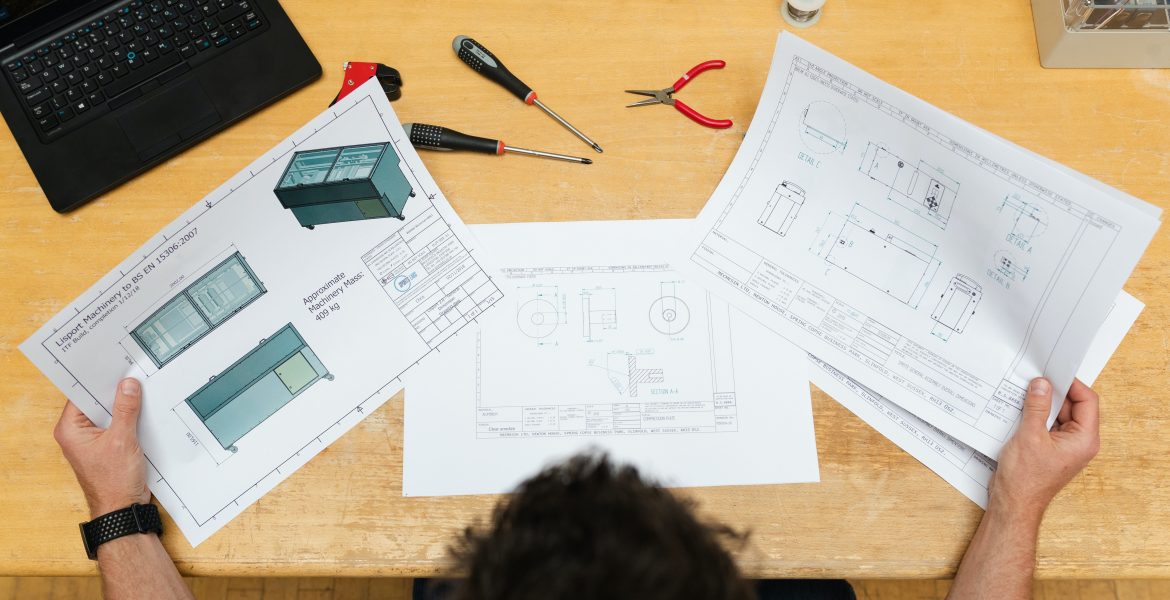Engineering is the process of designing, building, and testing systems, products, and processes to meet desired needs. It is also the application of scientific knowledge to develop these products or processes.
The engineering profession deals with all types of engineering fields such as mechanical engineering, electrical engineering, civil engineering, and chemical engineering.
What Are The Different Types Of Engineering?
Engineering is a broad field that encompasses many different types of engineering. There are many different types of engineering, including chemical engineering, civil engineering, computer engineering, electrical engineering, environmental engineering, and industrial and manufacturing (I&M) engineering.
The field of mechanical engineering deals with the design and operation of machinery, for example, pumps or motors in order to produce useful work or products such as foodstuffs or cars. Chemical engineers use science and math principles to transform raw materials into usable products like gasoline/petroleum/diesel fuel; plastics; pharmaceuticals; explosives; fertilizer etc., which can then be used by humankind in many ways including energy production etc.
Chemical engineering
Chemical engineers are responsible for the design, development, and operation of chemical plants. They use their knowledge of the properties and behavior of substances to solve problems in the production or use of chemicals.
The following are some fields that fall under this category:
- Petrochemical Process Engineers
- Biochemical Engineering
Petrochemical Process Engineers are responsible for designing and operating chemical plants that produce petrochemicals, which are used to make plastics, synthetic fibers, medicines, fuels, and other products.
Biochemical engineers are responsible for the development of new processes that use living organisms to manufacture products. These engineers may also be involved in the design of bioreactors and fermenters. This field of engineering is closely related to bioengineering and biomedical engineering.
Civil engineering
Civil engineering is the branch of engineering that deals with the design, construction, and maintenance of the physical and naturally built environment, including works like roads, bridges, canals, dams, airports, and sewers. With Dubai’s rapid urban expansion and large-scale infrastructure projects, Civil Engineer jobs in the Dubai market have been growing steadily, offering rewarding career paths for qualified professionals. Civil engineers may work on projects involving buildings (such as bridges) and earth structures, using BIM for civil engineers to enhance design and construction processes.
Civil engineers often work as consultants to other fields of engineering such as structural engineering or environmental/environmental sciences where they provide advice on how to improve the performance of existing structures and/or propose solutions for future projects.
Computer engineering
 Computer engineers are responsible for the design, development, and manufacturing of computers. They work on all aspects of computing, from microprocessors to operating systems to software. Computer engineers may work in a variety of industries including telecommunications, automotive, or aerospace.
Computer engineers are responsible for the design, development, and manufacturing of computers. They work on all aspects of computing, from microprocessors to operating systems to software. Computer engineers may work in a variety of industries including telecommunications, automotive, or aerospace.
They may work in an office or laboratory setting, or they may travel to different locations. Computer engineers typically need at least a bachelor’s degree in computer science, but many also earn master’s degrees.
Electrical engineering
Electrical engineering is the study of electricity and electronics. It’s a good career choice for people who enjoy math, and science, and are interested in working on devices that use electric current to power them.
Electrical engineers work in many different industries—from automotive manufacturing to telecommunications firms and power companies—and they’re always looking for ways to improve technology or make it more efficient. In some cases, electrical engineers will even design their own products from scratch!
Electrical engineers use many different types of equipment and tools in their work—from computers and software to power sources like generators and batteries. They also have to be able to read blueprints, which are drawings that show how a product will be made. They use blueprints to design devices and appliances, so they need to be able to read them. They also use computer programs like AutoCAD and SolidWorks to create models of their products.
Electrical engineers use math and physics to solve problems. They have to be able to do things like calculate the flow of electricity in a circuit, determine how much current can safely pass through a wire, or predict the heat generated by an electrical device. They also have to be able to measure voltage, amperage, and resistance using electrical test equipment.
Environmental engineering
Environmental engineering is the discipline that focuses on the management, treatment, or preservation of natural resources. Environmental engineering projects include those related to pollution control and waste disposal, water supply and sewage systems, air quality management, the environmental impact of e-waste, and climate change adaptation strategies.
Environmental engineers must have a broad knowledge base in mechanical engineering (which includes physics), chemistry/biology/geology/mathematics/heat transfer; etc. They also need strong interpersonal skills because they will work closely with other professionals such as biologists or economists who may be involved in project planning activities along with civil engineers working on physical site development aspects such as foundation design considerations. For tailored support in building effective environmental engineering solutions, many organizations turn to team of dedicated experts for guidance and implementation expertise.
Industrial and manufacturing engineering
Industrial and manufacturing engineering is a branch of engineering that deals with the optimization of complex processes. This involves solving problems related to material handling, production and distribution systems, machine design, and the development of automated systems.
Manufacturing engineer plays a major role in research and development; they analyze processes such as those that produce electronic devices or cars. The role of an industrial engineer is to improve current manufacturing systems by analyzing them thoroughly before suggesting changes that can be implemented at an early stage while still keeping costs low.
Mechanical engineering
 Mechanical engineering is the application of engineering to the design, development, and manufacturing of mechanical systems. Mechanical engineers are involved in the study, design, and production of machines that use engines or motors to provide for movement by transmitting energy from one point to another. This can range from a simple machine that lifts weights upstairs, to industrial robots and all types of vehicles ranging from airplanes to cars.
Mechanical engineering is the application of engineering to the design, development, and manufacturing of mechanical systems. Mechanical engineers are involved in the study, design, and production of machines that use engines or motors to provide for movement by transmitting energy from one point to another. This can range from a simple machine that lifts weights upstairs, to industrial robots and all types of vehicles ranging from airplanes to cars.
Civil Engineers must be licensed in many states; therefore, licensing requirements vary by state. To become licensed as a civil engineer (CE), you must pass both written and oral tests administered by either your state board or an accreditation agency such as ABET/BACEPOCH [CEC].
Electronics engineering
Electronics engineering is the application of electronics to the design and development of new products, processes, services, and systems. Electronics engineers are responsible for the design, manufacturing, and application of electrical circuits. They may specialize in any one of several different areas including analog circuits, digital circuits, or microelectronics.
Electronic engineers also study the use of electronics in everyday life such as household appliances and mobile phone technology. They work with others in many industries such as transportation, medical care, communications, and consumer goods. A bachelor’s degree in electronics engineering is offered at many universities around the world.
Aeronautical engineering
 Aeronautical engineering is a field that combines space science, aerodynamics, and applied mechanics to solve problems relating to flight systems. The field is divided into sub-disciplines including structural design, propulsion system design, aeroelasticity theory, aircraft systems engineering, and control system design.
Aeronautical engineering is a field that combines space science, aerodynamics, and applied mechanics to solve problems relating to flight systems. The field is divided into sub-disciplines including structural design, propulsion system design, aeroelasticity theory, aircraft systems engineering, and control system design.
It is the branch of engineering that is concerned with the development, design, testing, and production of aircraft and related systems. Aerospace engineering is an interdisciplinary branch of engineering that combines many fields of science and engineering in order to create aircraft and spacecraft.
Aerospace engineers are responsible for the design, manufacturing, and testing of aircraft, spacecraft, missiles, and related systems. They also work on space vehicles. Aerospace engineers may work in government agencies or private industries.
Biomedical engineering
Biomedical engineering is the study of how living systems work, using findings from biology and its subdisciplines to develop frameworks for understanding how biological systems function. Biomedical engineers use this knowledge to design devices and materials that can be used to treat or prevent illness. Biomedical engineering is a rapidly growing field that combines the knowledge and expertise of medicine, biology, chemistry, computer science, and engineering. Biomedical engineers are designing innovative medical devices to treat disease and injury. They also work on projects such as artificial organs, prosthetic limbs, and hearing aids.
The Bottom Line
Working in the field of engineering is an exciting and fulfilling career. It can be challenging at times, but with persistence and hard work, anyone can succeed. You are not limited to just one type of engineering – there are many different types available depending on what you like doing most!
We hope that this article helps you identify the most prominent types of engineering, and to find out which one is the best match for your personal goals and aspirations, as well as those of the future engineer.


